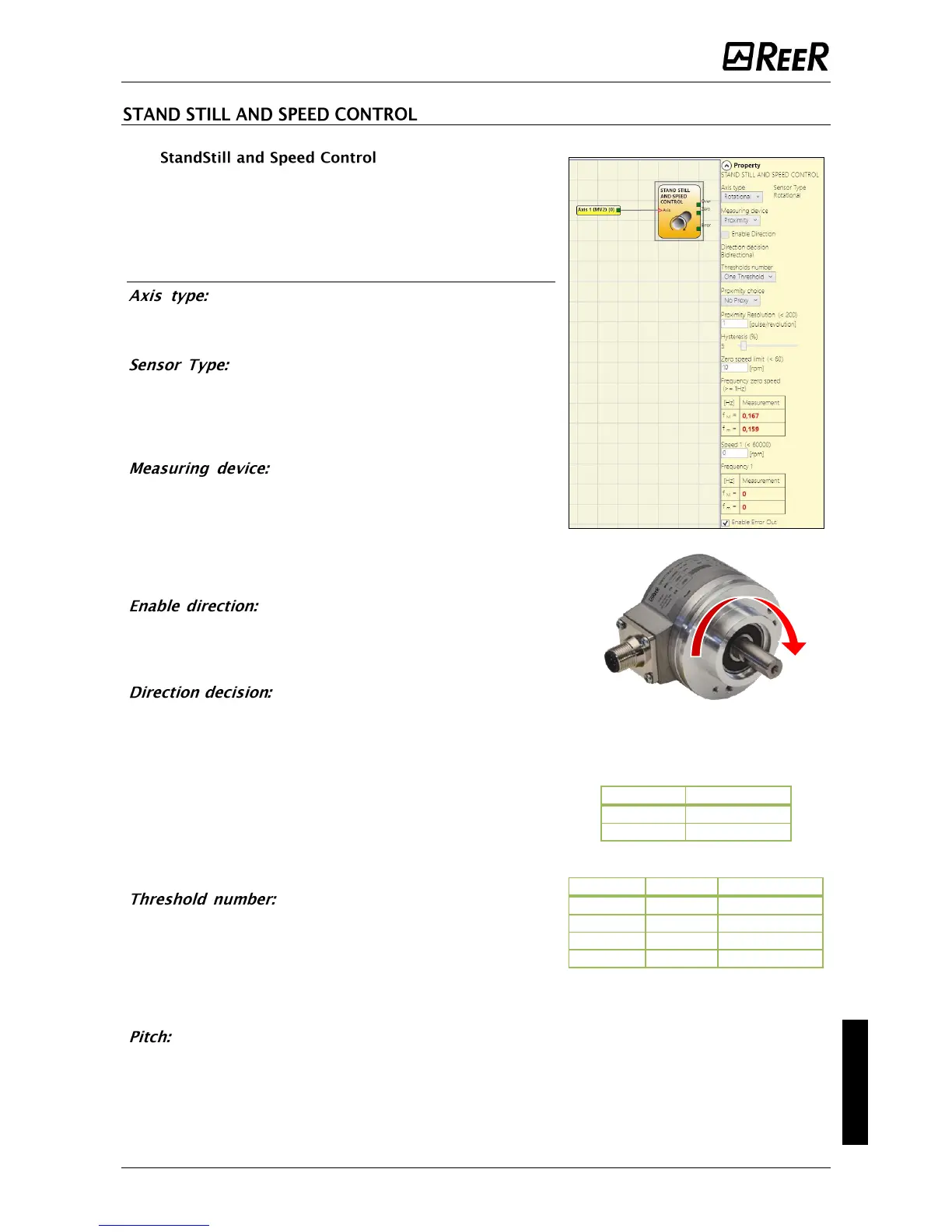The function block monitors
the speed of a device, generating the Zero to 1 (TRUE)
output when the speed is lower than a selected value. In
addition, it generates the Over = 0 (FALSE) output if the
measured speed exceeds a predetermined threshold.
Parameters
It defines the type of axis controlled by the
device. It will be Linear in the case of a translation and will
be Rotary in the case of motion around an axis.
In the event that the previous parameter is
Linear, the Sensor Type defines the type of sensor
connected to the module inputs. It can be Rotary (e.g. shaft
encoder) or Linear (e.g. optical array). This choice allows to
define the following parameters.
It defines the type of sensor(s) used.
The possible choices are:
- Encoder
- Proximity
- Encoder+Proximity
- Proximity1+ Proximity2
- Encoder1+ Encoder2
Enabling this parameter, the DIR output
is enabled on the function block. This output will be 1
(TRUE) when the axis rotates Counterclockwise and will be
0 (FALSE) when the axis rotates Clockwise.
It defines the direction of rotation for
which the set thresholds are made active. The possible
choices are:
- Bidirectional
- Clockwise
- Counterclockwise
If Bidirectional is selected, the excess of the set threshold
is detected whether the axis rotates clockwise or
counterclockwise. Selecting Clockwise or
Counterclockwise, this is detected only when the axis
rotates in the selected direction.
It allows you to enter the number of
thresholds for the maximum value of speed. Changing this
value will increase/decrease the number of thresholds that
can be entered from a minimum of 1 to a maximum of 4.
In the case of thresholds greater than 1, the input pins for
the selection of the specific threshold will appear in the
lower part of the function block.
If the Axis Type chosen was linear, this field allows
you to enter the sensor pitch to obtain a conversion
between sensor revolutions and distance travelled.

